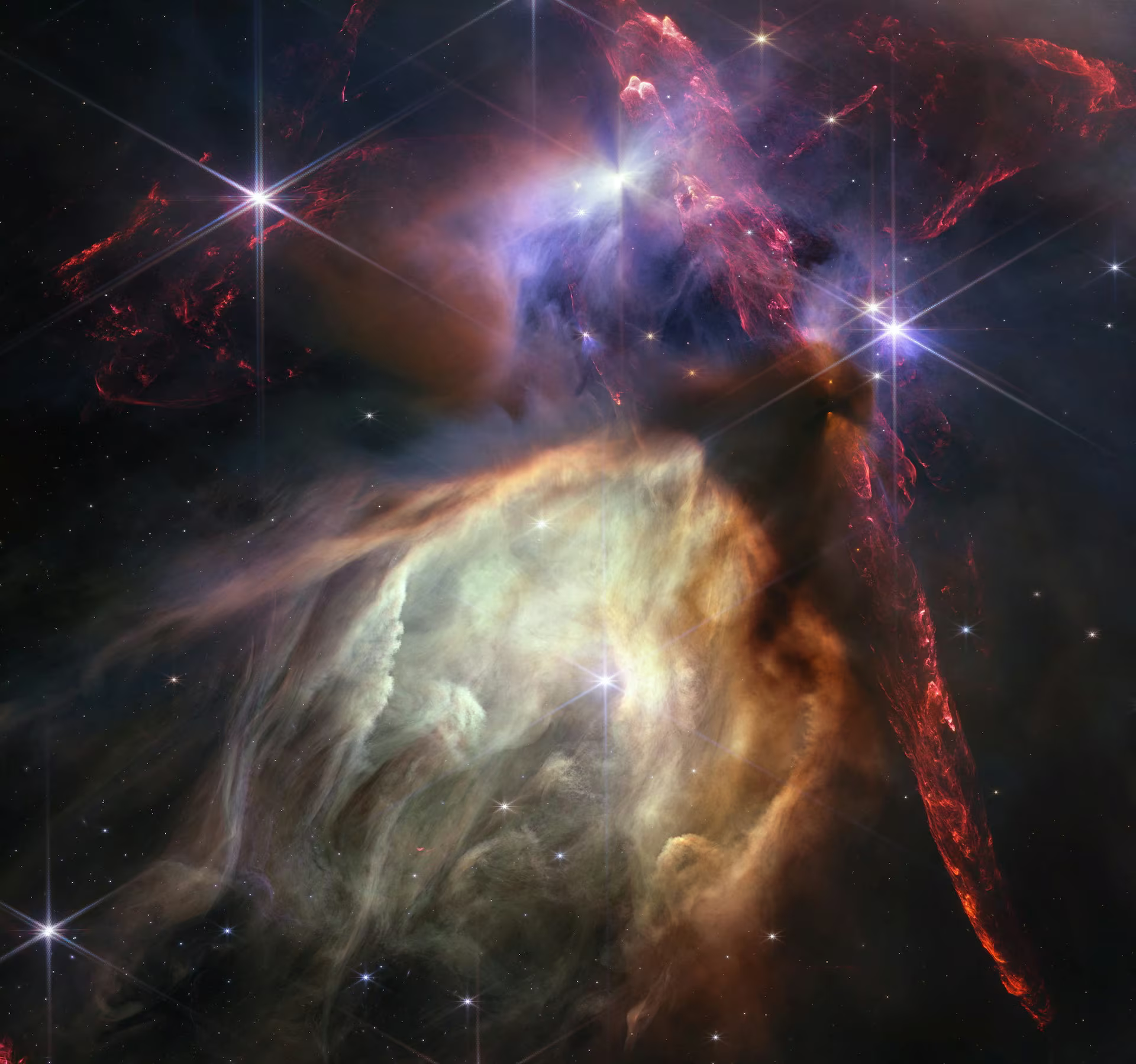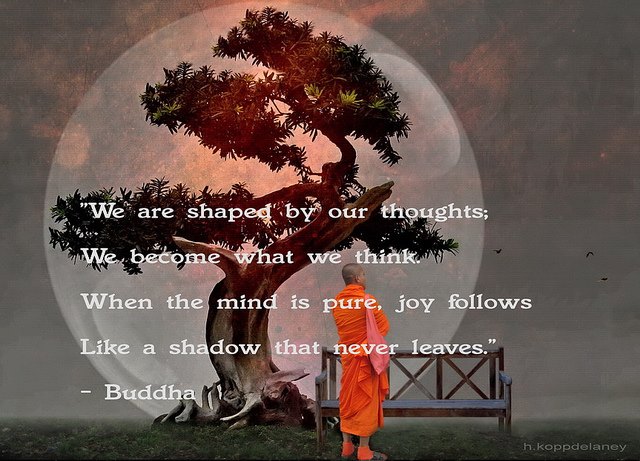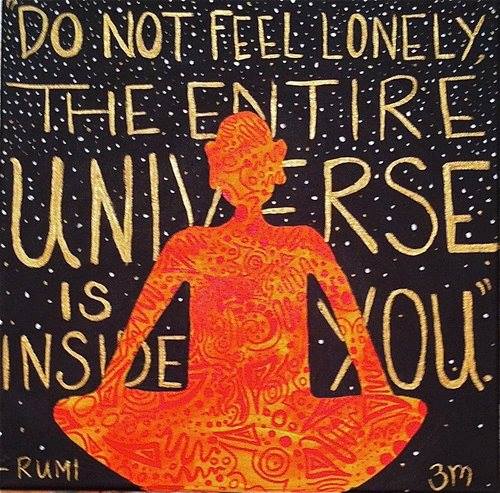Blog
Richard Clare Danko (December 29, 1943 – December 10, 1999) was a Canadian musician, bassist, songwriter, and singer, best known as a founding member of the Band, for which he was inducted into the Rock and Roll Hall of Fame in 1994.
During the 1960s, Danko performed as a member of the Hawks, backing Ronnie Hawkins and then Bob Dylan. Then, between 1968 and 1977, Danko and the Hawks, now called the Band, released seven studio albums before breaking up. Beginning with the group’s reformation in 1983 and up until his death, Danko participated in the Band’s partial reunion. On December 10, 1999, days after the end of a brief tour of the Midwest that included two shows in the Chicago area and a final gig at the Ark in Ann Arbor, Michigan, Danko died of heart failure in his sleep at his home in Marbletown, New York. He was 55.
more...A look at Sun-like stars being born in this detailed close-up of Rho Ophiuchi, the closest-star-forming region to Earth in a composite image taken by the James Webb Telescope and released by NASA on July 12, 2023. Dark, dense dust cocoons still-forming protostars, while an emerging stellar newborn (top center) shoots out two huge jets of molecular hydrogen. NASA.

Yvonne Marianne Elliman (born December 29, 1951) is an American singer, songwriter, and actress who performed for four years in the first cast of the stage musical Jesus Christ Superstar. She scored a number of hits in the 1970s and achieved a US No. 1 hit with “If I Can’t Have You“. The song also reached No. 9 on the Adult Contemporary chart and number 4 on the UK Singles Chart. Her cover of Barbara Lewis‘s “Hello Stranger” went to No. 1 on the Adult Contemporary chart, and “Love Me” was No. 5; at the time she had 3 top 10 singles. After a long hiatus in the 1980s and 1990s, during which time she left music to be with her family, she made a comeback album as a singer-songwriter in 2004.
more...Marianne Evelyn Gabriel Faithfull (born 29 December 1946) is an English rock singer-songwriter and actress. She achieved popularity in the 1960s with the release of her hit single “As Tears Go By” and became one of the lead female artists during the British Invasion in the United States.
Born in Hampstead, London, Faithfull began her career in 1964 after attending a party for the Rolling Stones, where she was discovered by Andrew Loog Oldham. Her debut album Marianne Faithfull (1965, released simultaneously with her album Come My Way), was a commercial success followed by a number of albums on Decca Records. From 1966 to 1970, she had a highly publicised romantic relationship with Mick Jagger. Her popularity was enhanced by her film roles, such as those in I’ll Never Forget What’s’isname (1967), The Girl on a Motorcycle (1968) and Hamlet (1969). However, her popularity was overshadowed by personal problems in the 1970s. During this time, she was anorexic, homeless and addicted to heroin.
Faithfull was noted for her distinctive voice; her melodic and high-registered vocals prevailed during her 1960s career, but these were altered by severe laryngitis coupled with persistent drug abuse during the 1970s, which left her voice permanently raspy, cracked and lower in pitch. This new sound was praised as “whisky soaked” by some critics and seen as having helped to capture the raw emotions expressed in Faithfull’s music.
After a long commercial absence, Faithfull made a comeback with the 1979 release of her critically acclaimed album Broken English. The album was a commercial success and marked a resurgence of her musical career. Broken English earned Faithfull a nomination for the Grammy Award for Best Female Rock Vocal Performance and is often regarded as her “definitive recording”. She followed this with a series of albums, including Dangerous Acquaintances (1981), A Child’s Adventure (1983) and Strange Weather(1987). Faithfull wrote three books about her life: Faithfull: An Autobiography (1994), Memories, Dreams & Reflections (2007) and Marianne Faithfull: A Life on Record (2014).
Faithfull received the World Lifetime Achievement Award at the 2009 Women’s World Awards, and she was made a Commandeur of the Ordre des Arts et des Lettres by the government of France.
more...b. 12-29-1935, Newton, Mississippi, USA, d. June 1995. Aka Prez Kenneth, as a youngster Kidd sang in the church choir but was also attracted to the blues. He settled in Chicago in 1956 and soon tried to learn guitar, switching to bass because he found it easier. In the 60s, Kidd recorded in a Jimmy Reed vein for the Biscayne label. His track ‘Devil Dealing’ was the prototype for G.L. Crockett’s hit ‘It’s A Man Down There’, but he received no credit. Towards the end of the decade he formed his own label, Kenneth Records, and although he recorded on a Hip Linkchain session in 1976, little was heard of him subsequently. He continued to work occasionally in west side Chicago clubs until his death in 1995.
more...Irving Conrad Ashby (December 29, 1920 – April 22, 1987) was an American jazz guitarist.
Ashby was born in Somerville, Massachusetts and started playing guitar when he was nine. His career started in 1940 when he became a member of Lionel Hampton‘s band, and he played on Hampton’s hit “Flying Home”. In 1947, he took over for Oscar Moore in the Nat King Cole Trio.
He then briefly replaced Charlie Smith, a drummer, in the Oscar Peterson Trio, producing a line-up (piano, guitar, bass) similar to the Cole Trio’s; the substitution of a guitarist for a drummer continued until 1958. After leaving the Peterson Trio, Ashby concentrated on session work, which included recording with Norman Granz, Sheb Wooley, LaVern Baker, Howard Roberts, B.B. King, Louis Jordan, and Pat Boone. In addition to guitar, Ashby played the upright bass. Ashby died in April 1987 in Perris, California, at the age of 66.
more...Joseph Salvatore Lovano (born December 29, 1952 Cleveland, OH) is an American jazz multi-instrumentalist. Though best known as a tenor saxophonist, Lovano has also recorded on alto clarinet, flute and drums, amongst other instruments. He has earned a Grammy Award and several mentions in Down Beatmagazine’s critics’ & readers’ polls. His wife is singer Judi Silvano, with whom he records and performs. Lovano was a longtime member of the late drummer Paul Motian‘s trio alongside guitarist Bill Frisell.
more...Our galaxy of the month this month is the tight triplet of galaxies in Pisces around NGC 470. I must thank Mark Stuart for recommending this group to me. The triplet includes NGC 467, NGC 470 and NGC 474. All three galaxies were found by William Herschel. NGC 470 and NGC 474 in 1784 and then NGC 467 a year later in 1785.
NGC 470 is a disturbed system and was included by Vorontosv-Velyaminov as number 948 in his extended catalogue. NGC 474 is also a disturbed system and Arp included it as Arp 227. It is not clear whether Arp meant Arp 227 to include both NGC 470 and NGC 474, or just NGC 474.
Arp 227 is a shell galaxy and appears to be in a physical pair with NGC 470. The pair lie at about 100 million light-years from us. NGC 467 is also a shell galaxy but is much further away than the others, although some older sources do suggest it is gravitationally part of the NGC 474 group. NGC 467 is also suggested to be a lenticular galaxy.

Michel Petrucciani (French pronunciation: [miʃɛl petʁutʃani]; Italian: [petrutˈtʃaːni]; 28 December 1962 – 6 January 1999) was a French jazz pianist. From birth he had osteogenesis imperfecta, a genetic disease that causes brittle bones and, in his case, short stature. Despite his health condition and relatively short life, he became one of the most accomplished jazz pianists of his generation.
more...Lonnie Liston Smith Jr. (born December 28, 1940) is an American jazz, soul, and funk musician who played with such jazz artists as Pharoah Sanders and Miles Davis before forming Lonnie Liston Smith and the Cosmic Echoes, recording a number of albums widely regarded as classics in the fusion, smooth jazzand acid jazz genres. In 1963, he moved to New York City, where he initially played piano in Betty Carter‘s band for a year.[1]Early in 1965, Smith began playing with Roland Kirk, first recording with his band on Here Comes The Whistleman (Atlantic, 1965), an album recorded live in New York on March 14, 1965. A further track from that gig, “Dream”, appeared on Roland Kirk and Al Hibbler‘s live album A Meeting of the Times (Atlantic, 1972).
Late in 1965, Smith joined Art Blakey‘s Jazz Messengers, sharing the piano position with Mike Nock and Keith Jarrett. The Jazz Messengers, together with Miles Davis’ group, were one of the main proving grounds for young up-and-coming jazz musicians, experimentally edgy and musically stretching, and both were an ever-revolving door of young modern jazz musicians as modes and moods rapidly changed during a fresh period of experimentation. Beginning with a live session at The Five Spot, New York City, November 9, 1965, Smith’s time as a Jazz Messenger was fairly short-term, only lasting until a three-gig engagement at The Village Vanguard 26–28 April 1966; by May 1966 his position was filled by Chick Corea. No recordings exist of this period.
more...
Edmund Leonard Thigpen (December 28, 1930 – January 13, 2010) was an American jazz drummer, best known for his work with the Oscar Peterson trio from 1959 to 1965. Thigpen also performed with the Billy Taylor trio from 1956 to 1959.
Born in Chicago, Thigpen was raised in Los Angeles, and attended Thomas Jefferson High School, where Art Farmer, Dexter Gordon, and Chico Hamilton also attended. After majoring in sociology at Los Angeles City College, Thigpen returned to East St. Louis for one year to pursue music while living with his father who had been playing with Andy Kirk‘s Clouds of Joy. His father, Ben Thigpen, was a drummer who played with Andy Kirk for sixteen years during the 1930s and 1940s.
Thigpen first worked professionally in New York City with the Cootie Williams orchestra from 1951 to 1952 at the Savoy Ballroom. During this time he played with musicians such as Dinah Washington, Gil Mellé, Oscar Pettiford, Eddie Vinson, Paul Quinichette, Ernie Wilkins, Charlie Rouse, Lennie Tristano, Jutta Hipp, Johnny Hodges, Dorothy Ashby, Bud Powell, and Billy Taylor.
In 1959, he replaced guitarist Herb Ellis in the Oscar Peterson Trio in Toronto, Ontario, Canada. In 1961, he recorded in Los Angeles, featuring on the Teddy Edwards–Howard McGhee Quintet album entitled Together Again!!!! for the Contemporary label with Phineas Newborn Jr. and Ray Brown. After leaving Peterson, Thigpen recorded the album Out of the Storm as a leader for Verve in 1966. He then went on to tour with Ella Fitzgerald from 1967 to 1972.
In 1972, Thigpen moved to Copenhagen, joining several other American jazz musicians who had settled in that city over the previous two decades. There he worked with fellow American expatriates, including Kenny Drew, Ernie Wilkins, Thad Jones, as well as leading Danish jazz musicians such as Svend Asmussen, Mads Vinding, Alex Riel, and Niels-Henning Ørsted Pedersen. He also played with a variety of other leading musicians of the time, such as Clark Terry, Eddie “Lockjaw” Davis, Milt Jackson, and Monty Alexander.
more...Earl Kenneth Hines, also known as Earl “Fatha” Hines (December 28, 1903 – April 22, 1983 Duquesne, Pennsylvania), was an American jazz pianist and bandleader. He was one of the most influential figures in the development of jazz piano and, according to one source, “one of a small number of pianists whose playing shaped the history of jazz”.
The trumpeter Dizzy Gillespie (a member of Hines’s big band, along with Charlie Parker) wrote,
The piano is the basis of modern harmony. This little guy came out of Chicago, Earl Hines. He changed the style of the piano. You can find the roots of Bud Powell, Herbie Hancock, all the guys who came after that. If it hadn’t been for Earl Hines blazing the path for the next generation to come, it’s no telling where or how they would be playing now. There were individual variations but the style of … the modern piano came from Earl Hines.
The pianist Lennie Tristano said, “Earl Hines is the only one of us capable of creating real jazz and real swing when playing all alone.” Horace Silver said, “He has a completely unique style. No one can get that sound, no other pianist.” Erroll Garner said, “When you talk about greatness, you talk about Art Tatum and Earl Hines.”
Count Basie said that Hines was “the greatest piano player in the world”.
more...
Prepared on 12-24-24 Probably my grandpa Giuseppe’s receipt when he owned a small restaurant in Napoli. Which he showed to my grandma Pasqulina. My grandma showed my mom and my mom walked me through the preparation.




More Posts
- The Cosmos with NGC 6872 & IC 4970
- Paul McCartney Day
- William Hooker Day
- Rudy Rutherford Day
- World Fusion with Manika Kaur
- Daily Roots with the Congos
- Happy Fathers Day 2018
- The Cosmos with RCW 108
- Chuck Rainey Day
- Sing Miller Day
- World Music with Corvus Corax
- Daily Roots with ITSJAHMIEL
- The Cosmos with NGC 3372
- Lucky Thompson Day
- World Music with Sherrifo Konteh
- Daily Roots with Culture
- The Cosmos with NGC 3190
- Jaki Byard Day
- Erroll Garner Day


